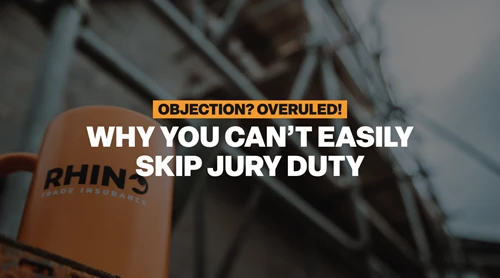As a business owner, staying informed about the national minimum wage is crucial. The National Minimum Wage not only guarantees a basic income but also serves as a reliable indicator of economic health. Today, we will look at what the National Minimum Wage means for businesses, discuss its recent trends, and share when you can expect it to go up.
Understanding the National Minimum Wage
The National Minimum Wage is a legally binding hourly rate that employers must pay their employees as a minimum. It ensures that workers receive a fair and competitive wage, safeguarding their economic well-being. It’s key knowledge for tradespeople in the UK, as it directly affects their earning potential.
The UK government has adjusted the minimum wage to keep pace with the rising cost of living and to address income inequalities. As a tradesperson, staying informed about the national minimum wage is not just a legal requirement but also a crucial element of financial planning.
National Minimum Wage Rates in the UK
The national minimum wage in the UK is not one-size-fits-all; it varies depending on your age and employment status. Here are the current rates as of 2023:
- The National Minimum Wage for 23 and over: Workers aged 23+ are entitled to a minimum wage of £10.42 per hour.
- The National Minimum Wage for 21-22-year-olds: Workers aged 21 to 22 are entitled to a minimum wage of £10.18 per hour.
- The National Minimum Wage for 18-20-year-olds: For those aged 18 to 20, the minimum wage stands at £7.49 per hour.
- The National Minimum Wage for Under-18s: Workers under 18 who are above the compulsory school age are entitled to a minimum wage of £5.28 per hour.
- Apprentice Minimum Wage: Apprentices in the UK have a minimum wage of £5.28 per hour if they are under 19 or in the first year of their apprenticeship. Those aged 19 or over and past their first year of apprenticeship are entitled to the relevant minimum wage for their age.
For tradespeople, your age and experience will determine which rate you are entitled to. This makes it essential to keep up with the current rates to ensure you are paid fairly. Don’t forget, in the UK, if you are a trade business that employs staff you must hold employers liability insurance. This is a legal requirement and luckily for you, Rhino Trade Insurance can offer up to £10 million in protection that is customised to your business operations.
The Impact on Trade Businesses
The national minimum wage has far-reaching implications for businesses, including those in the trades industry. Here are some key ways it affects them:
Compliance with the Law:
Businesses must adhere to minimum wage rates set by the government. Failure to do so can result in penalties and legal consequences, which could harm the reputation and financial stability of the company.
Recruitment and Retention:
Offering a competitive wage is crucial for attracting and retaining skilled tradespeople. Paying less than the minimum wage is illegal and would deter qualified workers from joining a business or cause them to seek employment elsewhere.
Operating Costs:
Adhering to the minimum wage can increase a business's operating costs, which might need to be passed on to customers through higher prices for goods or services. Managing this balance is essential for staying competitive while ensuring fair wages.
Productivity and Employee Satisfaction:
Paying employees a fair wage can boost their motivation, job satisfaction, and overall productivity. Content and well-compensated workers are more likely to deliver high-quality work, which is especially important in the trades industry.
Economic Stability:
The national minimum wage also plays a broader role in maintaining economic stability. By ensuring that all workers receive a fair wage, it reduces income inequality, which can have a positive impact on social cohesion and consumer spending.
The Future of the National Minimum Wage
The national minimum wage is subject to periodic reviews and adjustments by the UK government to ensure that it remains fair and reflective of the cost of living. But when can tradespeople in the UK expect it to go up, and what trends are currently shaping its future?
The government typically announces changes to the minimum wage in the spring, with new rates taking effect in April. This practice allows workers and businesses to prepare for the adjustments. Annual increases aim to keep wages in line with inflation and rising living costs. For 2024, the government has already announced the national minimum wage will rise to over £11 an hour from April 2024.
Before announcing any changes to the minimum wage, the government conducts thorough research and seeks input from relevant stakeholders. This ensures that the rates are based on accurate data and are broadly accepted as fair. The rate at which the national minimum wage increases is influenced by economic and political factors. Government policies, the state of the economy, and public sentiment all play a role in setting the new rates.
Why Take Out Cover With Rhino Trade Insurance?
For tradesmen and women in the UK, understanding the national minimum wage is not only essential for legal compliance but also for securing a fair income for your employees. Wages for skilled workers in the trades are often higher, but it's good practice to know the benchmark so that you can financially prepare your business for any situation.
As a trade business, you must explore your insurance options too. Every trade in the UK has risk attached, and having the right protection is paramount to your success. At Rhino Trade Insurance, we have designed a host of top-quality cover options for tradespeople of all disciplines. Get a cost-effective quote in an instant today by calling 0116 243 7904.




